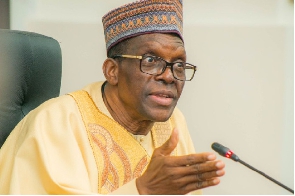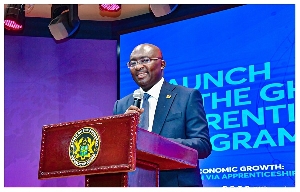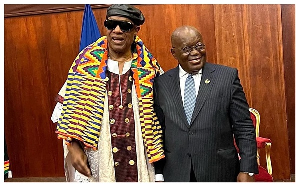Opinions of Saturday, 13 January 2024
Columnist: Awineyesena Abiire
Open letter to Speaker of Parliament
Dear Honourable Speaker,
Three decades of decentralization and the improprieties in assembly members emoluments, decentralization has been a compelling topic from the era of civilization and numerous philosophers have contributed to the subject. It is argued that through decentralization public goods will reach every nuke and cranny of the society. Consequently, the 1992 Constitution devoted Chapter 20 to addressing the three legs of decentralization – administrative, political and fiscal decentralization.
This was followed by the enactment of the Local Government Act, 1993 (Act 462). The object of the Act, among other things, was to, among other things, “establish and regulate the local government system in accordance with the constitution”.
Fast forward, Act 462 was repealed and replaced in 2016 by the Local Governance Act, 2016(Act 936), with the object of “providing for local governance in accordance with the Constitution.”
What then is the constitutional provision as far as decentralization under the 4 the Republic is concerned? At the national level, the Constitution vests legislative power in Parliament, while executive power is vested in the President under Article 58(1). Article 93 (2), The Constitution, in its decentralization bid, replicated a similar model of governance as pertains to the national level at the local level. Article 241(3) of the 1992 Constitution states that “a District Assembly shall be the highest political authority in the district, and shall have deliberative, legislative and executive powers”. This provision is again emphasized in the current Local Governance Act, 2016 (Act 936). According to section 12(2), “A District Assembly shall exercise deliberative, legislature and executive functions”.
Judging from sections 12(2) and 16 of Act 936, and the authority and duties of Duties of members of a District Assembly under section 16 of Act 936 which are similar to those of Members of Parliament, and to some extent, the executive. It is unconscionable and patently unreasonable therefore to accept that members of a District Assembly have no compensation. It is in making Assembly Members’ roles effective that the 1992 Constitution made a case for the emoluments of members of a District Assembly.
According to Article 250(2), “The emoluments of a Presiding Member of a District Assembly and other members (emphasis added) of the assembly shall be determined by the District Assembly and paid out of the assembly’s own resources.”(Emphasis added).
The question that arises is, who are these “other members of the assembly”? Article 242 of the Constitution and Section 5(1) and (2) of Act 936 enlist the member or members of parliament from the constituencies that fall within the District Assembly, the District Chief Executive, the elected assembly members, and the appointed ones whose number should not exceed 30% of all the members of the District Assembly. Essentially, since the Members of Parliament and District Chief Executives’ emoluments are respectively covered under Article 98(1) and 250(1) of the 1992 Constitution, it goes without saying that, the “other members of the Assembly” connotes the elected and the appointed ones.
Thus, it is both constitutionally and statutorily erroneous to accept the notion that the services of the “other members of the Assembly” go without any compensation. It is not insignificant to note that other stakeholders may complain of a lack of resources. The first budget statement of the current government titled: "SOWING THE SEEDS FOR GROWTH AND JOBS", paradoxically, cuts the District Assembly Common Fund percentage of 7.5% in 2016 by a significant one-third (⅓) to only 5% and the Assemblies still faired well.
Besides. Besides, Article 71 Office Holders have never been denied their emoluments for lack of resources and therefore, it will be unconstitutional for Article 250 (2) Office Holders to be denied their emoluments. Thus, it is my considered opinion that your highly respected office will be used as a facilitating tool to end these three decades of constitutional breaches as far as the emoluments of the “other members of the Assembly” are concerned.













